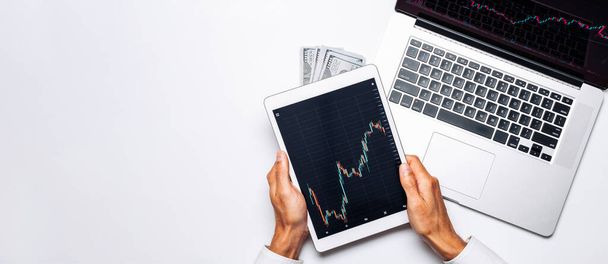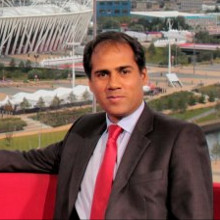London stocks on the FTSE 100 slid in early trade on Thursday as Donald Trump’s aggressive tariff announcement rattled markets.

At 0825 BST, the FTSE 100 was down 1.1% at 8,510.82, while sterling was 0.8% higher against the dollar at 1.3112, after the US president announced a range of tariffs on countries around the world, including the UK.
Holding up a large chart detailing the affected countries at a press conference in the White House, the US president announced a new 10% baseline tariffs on all goods imported into the US.
But there was also a range of higher rates for countries that the Trump administration believes have high trade barriers to US imports.
The European Union will be hit with a 20% tariff on top of the 10% baseline. Trump called the bloc “tough traders” who “rip us off. It’s so sad to see. It’s pathetic”.
Japan and South Korea, countries with traditionally good relationships with the US, were hit with reciprocal rates of 24% and 25% respectively. Vietnam was hit with a 46% rate, India with 26% and Thailand with 36%.
China’s rate was 34%, which Treasury secretary Scott Bessent said extended to 54% when combined with an earlier 20% rate announced in February. A separate rate of 32% was imposed on Taiwan.
The UK, Brazil and Singapore escaped higher reciprocal taxes, but still got the 10% baseline.
One of the few countries to avoid tariffs entirely was Russia.
The UK said it remained committed to negotiating an economic deal with the US.
Matt Britzman, senior equity analyst at Hargreaves Lansdown, said: “Trump’s bold attempt to reshape international trade has sent shockwaves through global markets. The effects of ‘Liberation Day’ are being felt far and wide, with Asian markets down overnight, European stocks under pressure in early trading, and US futures pointing to a big drop later today. With tariffs reaching levels unseen in over a century, the US is poised to rake in an additional $600bn in tariff revenue in an optimistic scenario, or put that another way, that’d be a $600bn added cost for businesses or consumers to stomach.
“While economists scramble to predict the impact on inflation and global growth, businesses around the world are getting their first real look at what a tariff-heavy US trade policy means, and this may just be the beginning of a fresh round of tariff drama. Each country now faces the option of negotiating from this starting point, which, in theory, represents the worst-case scenario. A carrot has been dangled, but if countries opt for the stick, retaliation could mean things get worse before they get better. That doesn’t make it any easier for businesses to make clear-cut decisions about major investments in their supply chains, so we can expect volatility to stick around for the foreseeable future.
“The UK, meanwhile, may seem to have fared better than some, but its deep ties to the global economy make a slowdown in growth almost unavoidable and the FTSE 100 has been caught up in the global market sell-off. The government is taking a pragmatic approach, hoping for a trade deal that could ease some of the tariff burden. However, with uncertainty looming large, where we go from here is hard to call and markets rarely respond well to uncertainty.”
As investors fled to safety, gold prices rallied again, hitting a fresh all-time high just after the announcement before pulling back a touch this morning.
Britzman said: “There’s a lot of debate about whether gold adds real value to a portfolio in the long run, but investors are clearly leaning in to take some shorter-term risk off the table.”
In equity markets, Asia-focused bank Standard Chartered was the biggest loser on the FTSE 100, closely followed by paper and packaging group Mondi and JD Sports.
Electrical retailer Currys surged as it lifted annual earnings guidance after “robust” trading since the start of the year. Group adjusted profit before tax is now expected to be around £160m, compared to previous guidance of £145m to £155m, Currys said.
Real estate investment group Primary Health Properties fell after saying it has made a £1.5bn takeover proposal for Assura, the developer and manager of GP and primary care buildings.
Under the cash and shares proposal, Assura shareholders will receive 0.3848 new PHP shares and 9.08p in cash, implying a value of 46.2p per Assura share – a 23.5% premium to its closing share price on the day before the offer period commenced.
Top 10 FTSE 100 Risers
| Sponsored by Plus500 |
|
| # | Name | Change Pct | Change | Cur Price | |
|---|---|---|---|---|---|
| 1 | 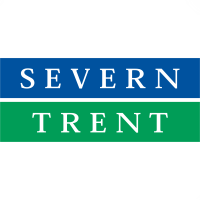 |
Severn Trent Plc | +3.22% | +82.00 | 2,627.00 |
| 2 |  |
United Utilities Group Plc | +3.03% | +31.00 | 1,055.00 |
| 3 | 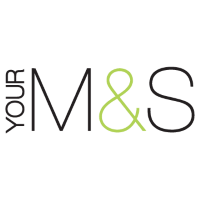 |
Marks And Spencer Group Plc | +2.96% | +10.80 | 375.90 |
| 4 |  |
Sse Plc | +2.76% | +43.50 | 1,617.50 |
| 5 |  |
Segro Plc | +2.32% | +16.00 | 706.00 |
| 6 | 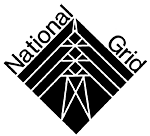 |
National Grid Plc | +2.23% | +22.50 | 1,030.50 |
| 7 |  |
Diageo Plc | +2.10% | +43.00 | 2,090.00 |
| 8 |  |
Wise Plc | +1.83% | +18.00 | 1,002.00 |
| 9 | 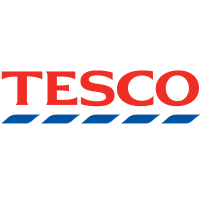 |
Tesco Plc | +1.78% | +5.90 | 337.00 |
| 10 | 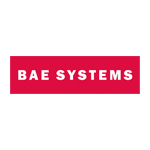 |
Bae Systems Plc | +1.66% | +26.00 | 1,596.50 |
Top 10 FTSE 100 Fallers
| Sponsored by Plus500 |
|
| # | Name | Change Pct | Change | Cur Price | |
|---|---|---|---|---|---|
| 1 |  |
Standard Chartered Plc | -7.68% | -88.50 | 1,064.00 |
| 2 |  |
Hsbc Holdings Plc | -5.50% | -48.60 | 834.40 |
| 3 | 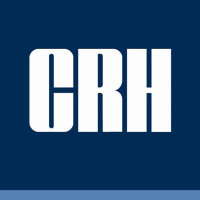 |
Crh Plc | -5.25% | -364.00 | 6,564.00 |
| 4 |  |
Barclays | -5.12% | -15.20 | 281.55 |
| 5 | 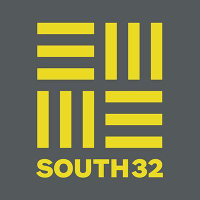 |
South32 Limited | -5.08% | -7.80 | 145.60 |
| 6 | 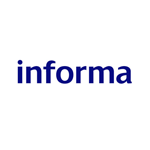 |
Informa Plc | -4.72% | -35.80 | 722.80 |
| 7 |  |
Intercontinental Hotels Group Plc | -4.68% | -394.00 | 8,018.00 |
| 8 | 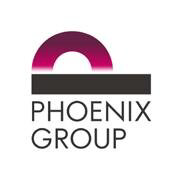 |
Phoenix Group Holdings Plc | -4.62% | -26.50 | 547.00 |
| 9 |  |
Experian Plc | -4.35% | -157.00 | 3,456.00 |
| 10 |  |
Smurfit Westrock Plc | -4.30% | -154.00 | 3,427.00 |
US close: Stocks higher, Trump unveils ‘Liberation Day’ tariffs
Major indices closed higher on Wednesday as investors braced for Donald Trump’s so-called ‘Liberation Day’ tariff announcements after the close.
At the close, the Dow Jones Industrial Average was up 0.56% at 42,225.32, while the S&P 500 advanced 0.67% to 5,670.97 and the Nasdaq Composite saw out the session 0.87% firmer at 17,601.05.
The Dow closed 235.36 points higher on Wednesday, easily reversing modest losses recorded in the previous session.
Today’s primary focus was undoubtedly Donald Trump’s long-awaited tariff announcement after the close, with the US president inking what he called a “historic executive order instituting reciprocal tariffs on countries throughout the world.”
“Reciprocal. That means they do it to us and we do it to them. Very simple. Can’t get any simpler than that,” said Trump, who branded his tariffs as America’s “declaration of economic independence”.
Trump confirmed his administration would slap 25% tariffs on auto imports starting at midnight, stating that no American companies were “allowed to go into other countries”. UK imports were struck with a 10% levy, while EU imports took a heftier 20% hit.
He also claimed that both jobs and factories would “come roaring back” and that the tariffs would usher in a “golden age” for the country. “We will supercharge our domestic industrial base, we will pry open foreign markets and break down foreign trade barriers and ultimately more production at home will mean stronger competition and lower prices for consumers,” he said.
However, Trump also stated the tariffs “will be not a full reciprocal. I could have done that, I guess. But it would have been tough for a lot of countries”. He said his administration will charge nations “approximately half of what they are and have been charging” the US. He also said the halved figure would include “the combined rate of all their tariffs, nonmonetary barriers and other forms of cheating”.
Following the announcement, the yield on the benchmark 10-year Treasury note was more than four basis points lower at 4.136%, while its two-year counterpart shed nearly three basis points to 3.858%.
On the macro front, US businesses added 155,000 workers to their payrolls in March, according to ADP, following an upwardly revised print of 84,000 in February and above market expectations of 105,000. “Despite policy uncertainty and downbeat consumers, the bottom line is this: The March topline number was a good one for the economy and employers of all sizes, if not necessarily all sectors”, said ADP chief economist Nela Richardson.
On another note, mortgage applications in the US have fallen for the third straight week, according to data out on Wednesday from the Mortgage Bankers Association of America. Applications were down 1.6% in the seven days to 28 March, following a 2.0% drop the preceding week and a 6.2% plunge the week before. Applications for new home purchases rose for the sixth straight week, increasing 1.5% to a nine-week high. However, refinancing applications dropped 5.6% to their lowest mark in five weeks.
Finally, new orders for US factory-made goods increased by 0.6% month-on-month in February, according to the Census Bureau, following January’s upwardly revised 1.8% increase and slightly exceeding expectations for a 0.5% uptick.
In the corporate space, shares in electric carmaker Tesla were lower after it reported Q1 deliveries that fell short of expectations on the Street.
Thursday newspaper round-up: Tax increases, Jes Staley, Barclay family
Rachel Reeves has defended the £40bn in tax increases in autumn’s budget as businesses brace for their impact, saying NHS waiting lists would now be higher if she had not taken action. Employers are set for a £25bn increase in national insurance contributions (NICs), which comes into force on 6 April, at the same time as consumers are being hit by a slew of increases in bills for everything from utilities to car tax. – Guardian
The former chief executive of Barclays Jes Staley took a “chance” in lying to the UK regulator about his relationship with Jeffrey Epstein amid fears that being truthful could end his career and fuel potential lawsuits by victims of the jailed child sex offender, a court has heard. The allegations were made by the Financial Conduct Authority (FCA) during closing statements for the high-profile case at the upper tribunal in London on Wednesday. – Guardian
Aston Martins and Scotch whisky are likely to become more expensive in the US under Donald Trump. Car manufacturing and the food and drink industry are among the UK sectors most impacted by the US president’s wave of new tariffs. All export billions of pounds worth of good to the US every year, which will now be subject to 10pc import taxes. – Telegraph
British families will be £400 worse off on average this year as Rachel Reeves’s tax rises combine with soaring bills to hammer living standards, top economists have warned. The Resolution Foundation think tank said benefits will also increase by less than the cost of living – leading to a “triple blow” to household finances. It said the long-running freeze to income tax thresholds, introduced under the Conservatives and sustained under Labour, is forcing more workers into paying tax and pushing others into higher brackets. – Telegraph
The former owners of the Telegraph Media Group have sold the superyacht named after the Barclay twins’ late mother as they continue to sell off assets to repay debts across their corporate empire. The cash-strapped Barclay family have sold the Lady Beatrice to the financier Peter Dubens for an undisclosed amount after putting it up for sale 17 months ago at €22 million. – The Times


 Hot Features
Hot Features



